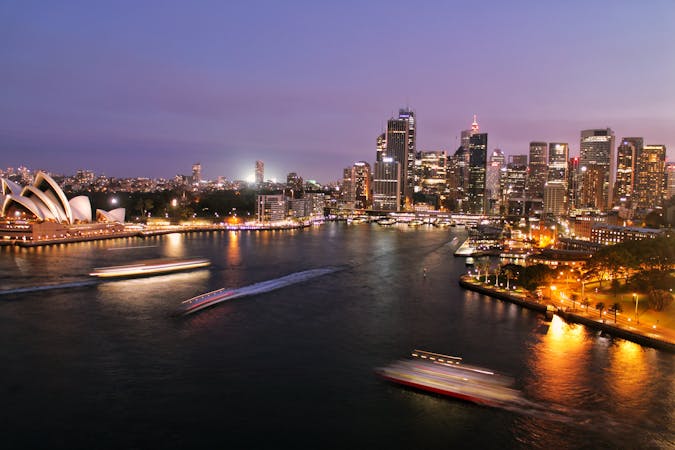
Australia Student Visa (Subclass 500)
Quality Education in a Vibrant Multicultural Society
The Australian Student Visa (Subclass 500) allows international students to study full-time at registered Australian educational institutions with excellent post-study work opportunities.
Important Disclaimer
Karan Gupta Consulting is not a visa agent or immigration consultant. This page provides general information for educational purposes only. Visa requirements and processes change frequently. Always verify current requirements with the official embassy, consulate, or immigration authority of Australia before applying. We strongly recommend consulting official government sources and, if needed, registered immigration advisors for your specific situation.
Overview
Australia's Student Visa (Subclass 500) provides international students access to world-class education institutions. With the Temporary Graduate Visa (subclass 485), graduates can stay and work in Australia for 2-6 years depending on their qualification and location, making it an attractive destination for long-term career planning.
Eligibility Criteria
Document Requirements
Ensure you have all required documents before starting your application
1Valid Passport
Passport valid for duration of stay
2Confirmation of Enrolment (CoE)
Electronic confirmation from your CRICOS-registered institution
3Genuine Temporary Entrant (GTE)
Written statement demonstrating genuine intention to study
4Financial Evidence
Proof of AUD 24,505/year living costs + tuition + travel costs
5OSHC
Overseas Student Health Cover for entire visa duration
6English Proficiency
IELTS, TOEFL, PTE or other approved test results
7Police Clearance
Character certificates from countries where you lived 12+ months
8Health Examination
Medical and/or chest x-ray examination
Application Process
Step-by-step guide to applying for your Australia student visa
Get CoE
Receive Confirmation of Enrolment from your CRICOS-registered institution
Get OSHC
Purchase Overseas Student Health Cover
Create ImmiAccount
Register on the Department of Home Affairs website
Complete Application
Fill out online application and upload documents
Pay Fee
Pay the visa application fee
Health Check
Complete medical examination at approved clinic
Receive Decision
Visa granted electronically (no stamp needed)
⏱️ Processing Time
14-45 days for most applications
Visa Fees
| Fee Type | Amount |
|---|---|
| Visa Application Fee | AUD 710 |
| Subsequent Temporary Application Charge | AUD 710 |
| OSHC | AUD 500-700/year |
| Health Examination | AUD 300-500 |
* Fees are approximate and subject to change. Always verify current fees with official sources.
Work Rights
During Studies
Unlimited work hours (rule changed in 2023); previously 48 hours/fortnight during session
After Graduation
Temporary Graduate Visa (485): 2-4 years for bachelors, 3-5 years for masters, 4-6 years for PhD (varies by location)
Visa Application Tips
Official Resources
Always refer to official government sources for the most accurate and up-to-date information
Frequently Asked Questions
Explore Other Study Visas
Compare visa requirements for different study destinations
⚠️ Important Reminder
This information is provided for general guidance only. Visa requirements, fees, and processes change frequently. Karan Gupta Consulting does not provide visa application services or immigration advice.
Please contact the official embassy, consulate, or immigration authority of Australia for the most current requirements and guidance specific to your situation.